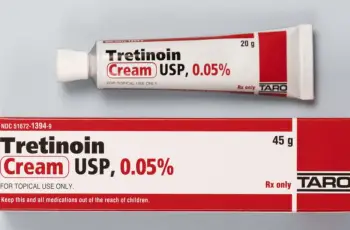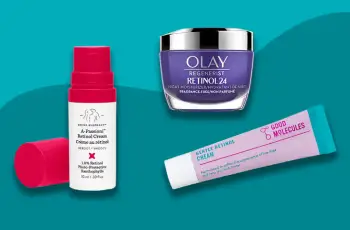
What Is Zinc and What Are Its Skincare Benefits?
Zinc is a mineral that many people have heard of or at least recognize the name. However, its benefits for skincare are often overlooked, whether taken as supplements or applied topically.
This mineral plays a crucial role in maintaining skin health and supporting the body’s functions.
What is Zinc?
Zinc is an essential mineral required by the body for many biological processes. It helps heal wounds, supports immune function, and contributes to the maintenance of healthy skin.
The outer layers of the skin contain relatively high amounts of zinc. However, the body cannot store zinc for extended periods, so regular intake is necessary to maintain optimal levels.
A daily supply of zinc encourages the growth of new, healthy skin cells, which is vital for skin renewal and repair.
Quick Facts About Zinc
Who benefits the most from zinc? People with blemish-prone or problematic skin typically see the greatest advantages from adding zinc to their skincare routine.
Zinc is particularly helpful for those dealing with frequent breakouts or oily skin.
How often should zinc be used? Zinc supplements are generally safe when taken daily, but it is recommended not to exceed 40 milligrams per day to avoid toxicity.
Using zinc topically in skincare products can be done daily, depending on product instructions.
What should you avoid when taking zinc? It’s best not to combine zinc supplements with multivitamins containing zinc, as this can lead to excessive intake.
Overconsumption may cause side effects, so monitor your total zinc sources carefully.
Zinc offers many benefits not just for internal health but especially for the skin. Let’s delve deeper into why zinc is such a valuable mineral for skincare.
What Are the Skincare Benefits of Zinc?
Zinc is prized for several important benefits related to skin health and appearance:
It helps heal skin lesions, wounds, and minor irritations.
Zinc reduces visible inflammation and redness, calming irritated skin.
It aids in the recovery process after active breakouts, speeding up healing.
Zinc can reduce early signs of aging, including fine lines and wrinkles.
It acts as a physical sunblock, protecting skin from harmful UVA and UVB rays.
Why Zinc Is Great for Problematic Skin
Zinc’s ability to regulate oil production in the skin is especially helpful for those prone to acne.
By limiting excess sebum secretion, zinc keeps pores clearer and reduces the chance of new blemishes forming.
A zinc deficiency might be a hidden cause behind unexpected acne flare-ups, making it crucial for skin balance.
Zinc’s Role Beyond Acne
Zinc’s benefits extend beyond just acne-prone skin. This mineral supports the skin’s structural integrity by promoting the synthesis of collagen and elastin fibers.
These proteins keep the skin firm and elastic, so with proper zinc levels, the skin appears tighter and more youthful.
By stimulating collagen and elastin production, zinc helps reduce the visible effects of aging. Fine lines and wrinkles become less pronounced, and overall skin texture improves.
Zinc as a Natural Sun Protector
One of zinc’s standout qualities is its ability to physically block ultraviolet rays.
Unlike chemical sunscreens, zinc oxide forms a protective layer on the skin’s surface that reflects UV rays, shielding the skin from damage.
This protects the skin’s barrier and prevents premature aging caused by sun exposure.
UV radiation generates free radicals, unstable molecules that attack skin cells and degrade collagen.
Zinc counters these harmful effects by neutralizing free radicals and supporting the skin’s natural defenses.
Is Zinc Effective Against Wrinkles?
Yes! Zinc supports the skin’s foundation by boosting collagen and elastin, which diminish with age.
Maintaining adequate zinc levels helps prevent loss of skin elasticity and firmness, which are key contributors to wrinkles.
By preserving these structural proteins, zinc helps keep skin looking youthful and resilient. Regular zinc intake or topical use can visibly slow down the appearance of fine lines and wrinkles.
Different Forms of Zinc and Which Is Best
There are several forms of zinc used in supplements and skincare, each with unique properties:
Zinc acetate
Zinc sulfate
Zinc picolinate
Zinc monomethionine
Zinc gluconate
Zinc glycinate
Zinc orotate
Zinc citrate
Among these, zinc picolinate is considered the most effective for skin health. It has superior absorption, meaning the body can utilize it faster and more efficiently.
Zinc picolinate is also regarded as very safe, commonly recommended for pregnant women with zinc deficiencies.
Topical products containing zinc picolinate or zinc oxide can penetrate the skin barrier to deliver benefits directly to the surface and underlying layers, enhancing skin repair and protection.
Can Zinc Cause Skin Problems?
Although zinc is generally safe, some individuals may experience adverse reactions, though these are rare. Possible side effects include:
Allergic reactions such as rashes or hives
Itching and redness
Skin blistering or peeling
Respiratory symptoms like wheezing or tightness in the chest
Difficulty breathing or swallowing
If you notice any of these symptoms, especially breathing issues or swelling, seek medical attention immediately.
It’s also advisable to consult a healthcare professional before starting zinc supplements or topical treatments.
How to Test for Zinc Sensitivity
Before applying a new zinc-based product to your face, do a patch test. Apply a small amount to the inside of your forearm and wait 24 hours.
If there is no irritation or adverse reaction, it’s likely safe to use on your facial skin.
Final Thoughts on Zinc and Skincare
Zinc is a remarkable mineral with multiple benefits for skin health. It supports wound healing, reduces inflammation, controls oil production, and protects against UV damage.
Zinc also helps maintain the skin’s youthful appearance by boosting collagen and elastin.
For those struggling with acne or signs of aging, zinc can be a powerful ally in your skincare regimen.
Whether through supplements or topical creams, incorporating zinc can promote clearer, healthier, and more resilient skin.
The impressive range of zinc’s benefits might just inspire you to revisit your science lessons from the periodic table! This essential mineral deserves a place in both your diet and skincare routine.


